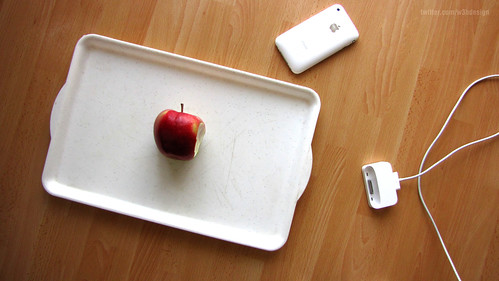With technology now an essential part of the learning process, how can schools protect themselves from expensive repair bills as a result of the inevitable classroom accidents?
Technology is fast becoming an essential tool in education. The way in which we teach children has changed and technological advances have meant things like electronic whiteboards and laptops have become regular features in the classroom.
However, according to a recent news report, introducing technology into the classroom can be a costly move.
A recent story in a national paper claimed one school in Essex spent £500,000 providing its 1200 pupils with iPads for use as learning tools but, within 12 months, four in ten have had to be repaired after being scratched, knocked or dropped while almost 500 have had to be replaced after being damaged beyond repair.
And so presents a dilemma – how can schools keep up with the technological revolution without incurring an expensive repair bill? Children will, as they say, be children and accidents will happen. But by employing these safeguarding techniques, schools can employ effective damage limitation:
1) Ensure the technology is essential
It’s news to no one that outside influences are constantly having an impact on education – from politics to the economy. But when it comes to technology it’s important to make sure those influences are not taking precedence over what is best for students. The desire to appear on trend and up-to-date should not be behind the decision to provide pupils with laptops or iPads. Pupils should only be provided with expensive technical equipment where it is deemed necessary or, at least, advantageous for their studies.
2) Invest in ‘protective clothing’
Scratches are one of the most common reasons an iPad needs repairing. Touch screen technology may be all the rage but for an excited child with ten eager fingers it can spell trouble. There’s a simple solution. Screen protectors are relatively inexpensive and can help to keep a screen looking good as new.
For bigger problems (such as dropping iPads and laptops) protective clothing of a more sturdy variety is called for. There are a range of rugged cases and bags on the market which, while they may seem costly at around £4 upwards, can save thousands as a result of the protection they offer.
3) Where possible restrict travel
Children will have accidents. It’s an undeniably fact. And, as such, it makes sense to restrict the involvement of expensive equipment in those accidents wherever possible. Keep iPads and laptops within the school building as opposed to allowing children to take them into the playground or to their homes. Tailor homework to avoid the need for the equipment.
Where it is necessary to allow students to take iPads or laptops home it would be beneficial to employ the assistance of parents. For younger pupils in particular, inform parents of the decision to allow the pupil to have the equipment at home and stress the important of safeguarding it. If possible introduce a policy that requires the parent or guardian to collect the equipment from school and return it safely.
4) Consider confiscation
If pupils are incapable of looking after their equipment correctly the threat of confiscation could be used. Where children are seen to be acting irresponsibly with regards to their laptops or iPads staff could confiscate them for a set period of time.
5) Introduce a penalty
If laptops or iPads are being broken outside of school hours and on numerous occasions it may be necessary to introduce a penalty for damage to school property. By informing parents – or, in the case of the older years, pupils themselves – that a penalty fee will be incurred where equipment is found to not be taken care of adequately there may be more incentive to look after it.
Please submit your comments below.
Do you have something to say about this or any other school management issue which you'd like to share? Then write for us!








